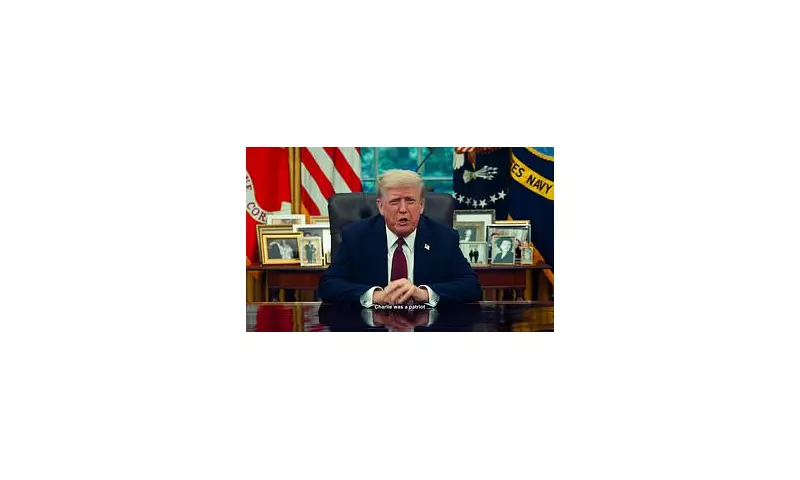
In a revelation that blurs the lines between cutting-edge technology and executive power, prominent conservative activist Charlie Kirk has detailed Donald Trump's extraordinary vision for a second term. The plan involves leveraging Artificial Intelligence to create a digital deepfake of the former president, effectively placing a perpetual "finger on the button" of government.
During a private gathering, Kirk outlined how this AI-powered "Trump 2.0" would act as a force multiplier, enabling the rapid firing of federal officials and the instantaneous implementation of controversial policies. This digital doppelgänger would theoretically operate from the Oval Office, executing commands with machine-like efficiency.
A Constitutional Conundrum
The proposal immediately raises profound legal and ethical questions. Constitutional experts are sounding alarms about the unprecedented nature of delegating presidential authority to an artificial intelligence. The very concept challenges foundational principles of accountability and the chain of command within the US government.
Kirk's comments suggest a administration prepared to bypass traditional bureaucratic hurdles, using technology to achieve what he describes as a "deconstruction of the administrative state." This approach signals a potential overhaul of federal governance unlike any in American history.
The Technology Behind the Vision
While specific technical details remain scarce, the concept points to advanced deepfake and AI voice replication technologies. Such tools could create a convincing digital simulation capable of issuing commands, though the legal validity of these actions would inevitably face fierce challenges in court.
The discussion reflects a growing fascination within political circles with leveraging AI, not just for campaigning, but for the actual mechanics of governance. This move would represent a quantum leap from using technology to win elections to using it to wield power.
Reactions and Implications
News of this AI strategy has been met with astonishment and concern across the political spectrum. Critics condemn it as a dangerous fantasy that undermines democratic norms, while supporters see it as a bold innovation to disrupt a stagnant system.
As the 2024 election approaches, this revelation positions technological adaptation as a central theme of Trump's campaign, promising a revolution in how the White House operates—for better or worse.





